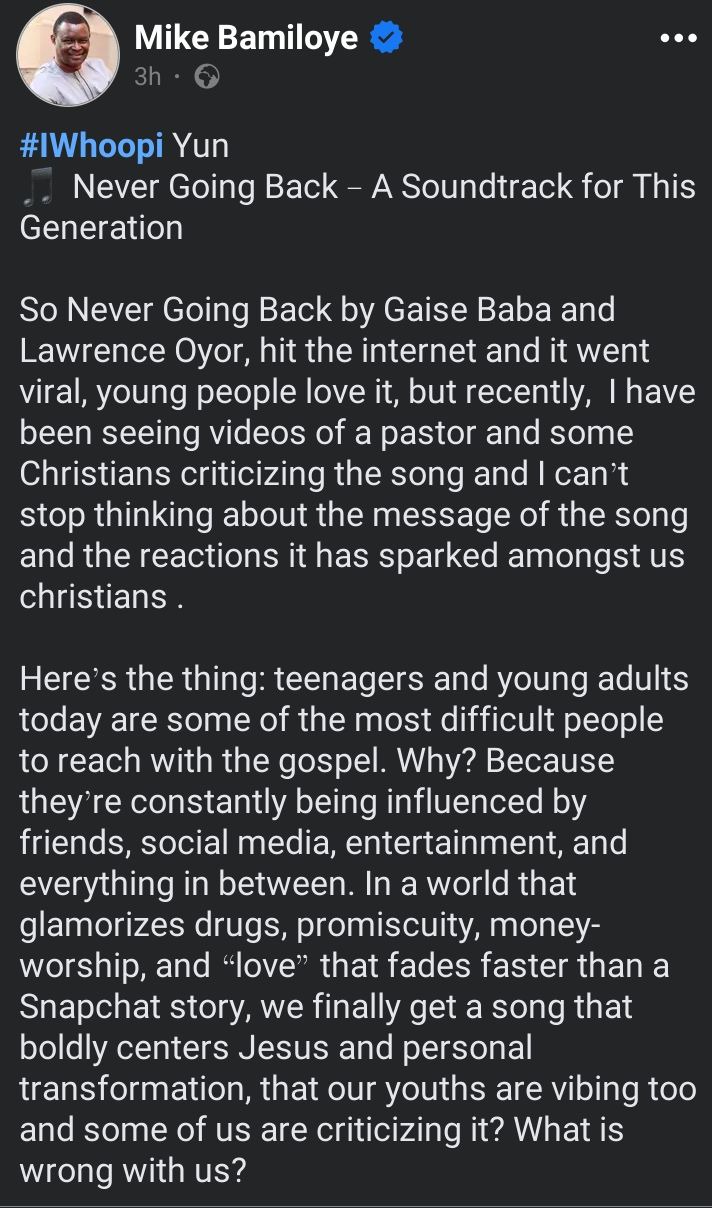
Reacting to the backlash, Bamiloye emphasized the need to discern the heart of the message rather than judge by outward appearances. “We can’t keep condemning the tools God is using to reach this generation,” he said. “The song is declaring the gospel in a language they understand. If Jesus were walking the streets of Lagos today, he wouldn’t ignore a song that says, ‘Ife Jesu lo wa mi ri.’ That’s pure gospel.”

Bamiloye, founder of Mount Zion Faith Ministries, urged believers to focus on the song’s spiritual impact. “The devil isn’t resting, and we’re attacking the few expressions that are pulling our young people back from the edge? Let’s be wise.” In response to critics citing the artists’ style as irreverent, some Christian creatives have echoed Bamiloye’s sentiment, pointing out that Jesus’ ministry defied societal norms and reached people where they were.
As debates continue, youth pastors and Christian influencers have launched the hashtag #PrayNotCriticize, encouraging the church to support gospel content that connects authentically with Gen Z and Millennials.
Bamiloye concluded, “The ark has moved. Some people are still trying to ‘save’ what God is no longer using. Let the gospel sound—on every beat, in every tongue, with every tool.”


